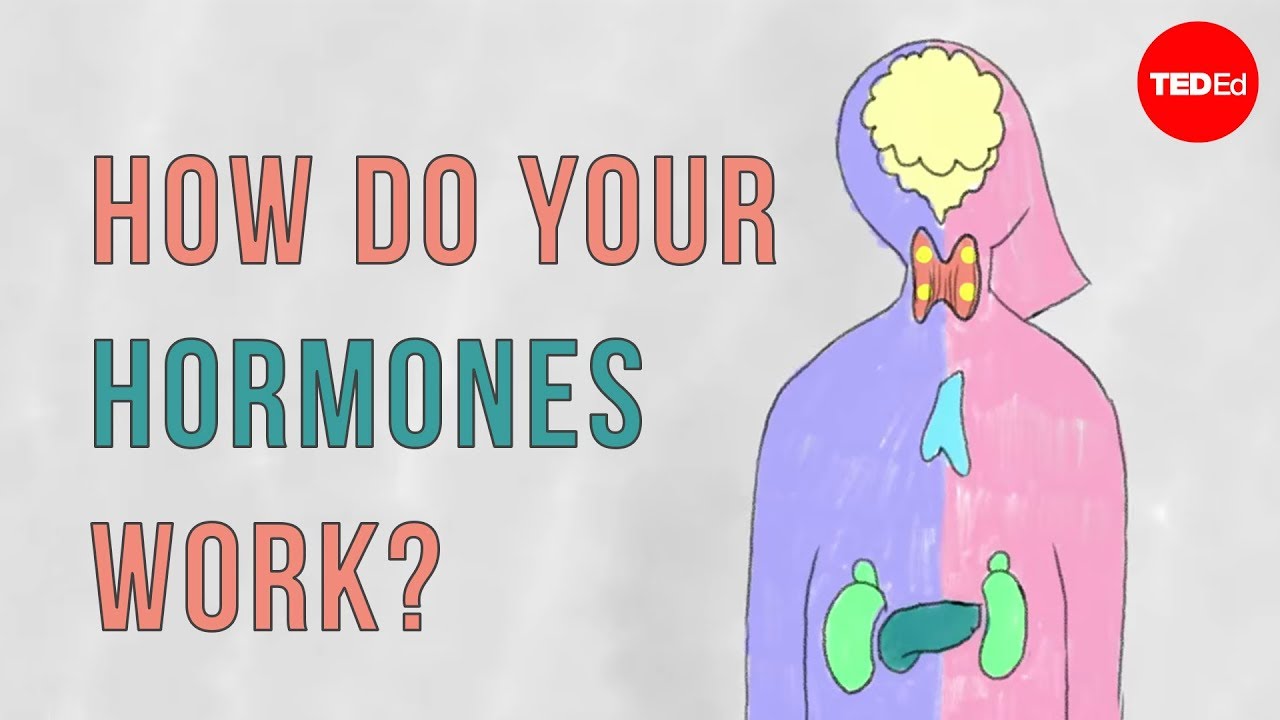Understanding The Connection Between Nutrition And Hormonal Health
Nutrition is the cornerstone of good health. A balanced and nutrient-dense diet can help prevent chronic diseases and improve overall well-being. Hormonal health, on the other hand, is essential for maintaining homeostasis in the body. Therefore, it is not surprising that there is a strong connection between nutrition and hormonal health. In this article, we will explore understanding the Connection between Nutrition and Hormonal Health.
Author:Suleman ShahReviewer:Han JuMar 29, 202343.1K Shares1M Views

Nutrition is the cornerstone of good health. A balanced and nutrient-dense diet can help prevent chronic diseasesand improve overall well-being. Hormonal health, on the other hand, is essential for maintaining homeostasis in the body.
Hormones play a critical role in regulating various bodily functions, such as metabolism, growth and development, mood, and sexual function.
Therefore, it is not surprising that there is a strong connection between nutrition and hormonal health. In this article, we will explore understanding the Connection between Nutrition and Hormonal Health.
Understanding The Connection Between Nutrition And Hormonal Health
Hormones are chemical messengers that are produced by the endocrine glands. These glands release hormones into the bloodstream, which carry them to the target cells where they elicit a response.
Hormonal imbalances can occur when there is an excess or deficiency of a particular hormone in the body. These imbalances can lead to a range of health problems, such as infertility, diabetes, and thyroid disorders.
Nutrition plays a crucial role in maintaining hormonal health. Certain nutrients are essential for the synthesis and metabolism of hormones. For example, cholesterol is a precursor to sex hormones such as estrogen, progesterone, and testosterone.
Zinc is necessary for the synthesis of the thyroid hormone, while iodine is required for the production of the thyroid hormone. Vitamin D, on the other hand, plays a vital role in the regulation of calcium and phosphorusmetabolism, which is essential for bone health.
In addition to providing the building blocks for hormone synthesis, nutrition also affects hormonal balance by regulating insulin and cortisol levels. Insulin is a hormone that regulates blood sugar levels.
When blood sugar levels are high, insulin is released to transport glucose into the cells. However, when insulin levels are chronically elevated due to a diet high in sugar and refined carbohydrates, it can lead to insulin resistance.
This condition is associated with a range of health problems, such as type 2 diabetes, obesity, and cardiovascular disease.
Cortisol, also known as the stress hormone, is released in response to stress. When cortisol levels are chronically elevated, it can lead to a range of health problems, such as anxiety, depression, and fatigue. A diet high in sugar and refined carbohydrates can increase cortisol levels, while a diet rich in whole foods, such as fruits, vegetables, and lean protein, can help regulate cortisol levels.
The Impact Of Specific Nutrients On Hormonal Health
When it comes to hormonal health, certain nutrients can have a significant impact on hormone production and balance. For example, studies have shown that consuming foods high in omega-3 fatty acids can help reduce inflammationand balance hormones. Similarly, consuming foods rich in vitamin D, such as fatty fish and fortified dairy products, can also support hormonal health.
In contrast, diets that are high in sugar, refined carbohydrates, and unhealthy fats can disrupt hormonal balance, leading to imbalances and negative health outcomes.
By making dietary choices that prioritize nutrient-dense, whole foods, individuals can support optimal hormonal health and improve overall well-being.
Lifestyle Factors And Hormonal Health - The Role Of Stress And Sleep
While diet is important for hormonal health, it is not the only factor to consider. Stress and sleep are two crucial lifestyle factors that can significantly impact hormonal balance.
High levels of stress can lead to an increase in the hormone cortisol, which, when produced in excess, can cause a range of negative health outcomes, including hormonal imbalances. Adequate sleep is also essential for optimal hormonal health, as it allows the body to restore and balance hormone levels.
Incorporating stress-reducing activities, such as meditation, yoga, or deep breathing exercises, and prioritizing consistent, restful sleep can help support hormonal health and improve overall well-being.
Hormonal Health And Gut Health - The Connection You Need To Know
The gut and hormonal systems are closely interconnected, with the gut playing a critical role in the production and regulation of hormones. The gut microbiome, or the collection of microorganisms that live in the digestive tract, can influence hormone production and balance.
Research has shown that a diet high in fiber and fermented foods, such as yogurt and kefir, can support gut health, promote a healthy microbiome, and improve hormonal balance. In contrast, diets that are high in processed foods and low in fiber can negatively impact gut health and hormonal balance.
By prioritizing gut health through diet and lifestyle choices, individuals can optimize hormonal health and improve overall well-being.
Hormonal Health For Women - Understanding The Menstrual Cycle And Menopause
Hormonal health is particularly important for women, as hormonal imbalances can lead to a range of negative health outcomes, including irregular periods, infertility, and menopause-related symptoms.
Understanding the menstrual cycle and menopause can help women better understand their hormonal health and take steps to support optimal balance. For example, consuming foods rich in phytoestrogens, such as soy and flaxseed, can help regulate estrogen levels and support menstrual regularity. Similarly, prioritizing adequate calcium and vitamin D intake can support bone health during menopause.
Working with a healthcare provider to identify and address any underlying hormonal imbalances can also help women optimize their hormonal health and improve overall well-being.
The Importance Of A Holistic Approach To Hormonal Health
Optimizing hormonal health requires a holistic approach that considers not only diet but also lifestyle factors, environmental factors, and individual health needs.
By prioritizing a nutrient-dense, whole-food diet, managing stress and sleep, supporting gut health, and understanding the menstrual cycle and menopause, individuals can take steps to optimize their hormonal health and improve overall well-being.
Working with a healthcare provider and incorporating individualized, evidence-based interventions can help individuals address any underlying hormonal imbalances and support optimal hormonal balance.

How do your hormones work? - Emma Bryce
Tips For Optimizing Nutrition And Hormonal Health
To optimize nutrition and hormonal health, it is important to adopt a whole foods-based diet that is rich in nutrients and low in processed foods. Here are some tips for achieving this:
Eat a variety of nutrient-dense foods: Nutrient-dense foods are those that are high in vitamins, minerals, and other beneficial compounds. Examples include fruits, vegetables, whole grains, lean protein, and healthy fats.
Avoid processed foods: Processed foods are often high in sugar, salt, and unhealthy fats. They are also low in nutrients and can contribute to hormonal imbalances.
Balance macronutrients: Macronutrients are the three main components of the diet - protein, carbohydrates, and fat. Balancing these macronutrients can help regulate blood sugar levels and hormone production.
Get enough fiber: Fiber is important for maintaining digestive health and regulating blood sugar levels. It also helps to remove excess hormones from the body.
Stay hydrated: Water is essential for the production and metabolism of hormones. It is also important for maintaining healthy digestion and preventing dehydration.
Limit alcohol and caffeine: Alcohol and caffeine can disrupt hormonal balance and contribute to stress.
People Also Ask
How Does Sugar And Refined Carbohydrates Impact Hormonal Health?
Diets high in sugar and refined carbohydrates can lead to hormonal imbalances and negative health outcomes.
What Nutrients Are Important For Hormonal Health?
Nutrients such as omega-3 fatty acids and vitamin D can support hormonal health and balance.
How Do Lifestyle Factors Such As Stress And Sleep Impact Hormonal Health?
High levels of stress and poor sleep can disrupt hormonal balance, leading to negative health outcomes.
Why Is A Holistic Approach Important For Optimizing Hormonal Health?
A holistic approach that considers diet, lifestyle factors, environmental factors, and individual health needs is important for supporting optimal hormonal balance and overall well-being.
Conclusion
Understanding the Connection between Nutrition and Hormonal Health is essential for maintaining hormonal balance and preventing chronic diseases.
A whole foods-based diet that is rich in nutrients and low in processed foods is key to optimizing both nutrition and hormonal health.
Balancing macronutrients, getting enough fiber, staying hydrated, and limiting alcohol and caffeine intake are some of the ways to ensure optimal nutrition and hormonal health.
Jump to
Understanding The Connection Between Nutrition And Hormonal Health
The Impact Of Specific Nutrients On Hormonal Health
Lifestyle Factors And Hormonal Health - The Role Of Stress And Sleep
Hormonal Health And Gut Health - The Connection You Need To Know
Hormonal Health For Women - Understanding The Menstrual Cycle And Menopause
The Importance Of A Holistic Approach To Hormonal Health
Tips For Optimizing Nutrition And Hormonal Health
People Also Ask
Conclusion

Suleman Shah
Author
Suleman Shah is a researcher and freelance writer. As a researcher, he has worked with MNS University of Agriculture, Multan (Pakistan) and Texas A & M University (USA). He regularly writes science articles and blogs for science news website immersse.com and open access publishers OA Publishing London and Scientific Times. He loves to keep himself updated on scientific developments and convert these developments into everyday language to update the readers about the developments in the scientific era. His primary research focus is Plant sciences, and he contributed to this field by publishing his research in scientific journals and presenting his work at many Conferences.
Shah graduated from the University of Agriculture Faisalabad (Pakistan) and started his professional carrier with Jaffer Agro Services and later with the Agriculture Department of the Government of Pakistan. His research interest compelled and attracted him to proceed with his carrier in Plant sciences research. So, he started his Ph.D. in Soil Science at MNS University of Agriculture Multan (Pakistan). Later, he started working as a visiting scholar with Texas A&M University (USA).
Shah’s experience with big Open Excess publishers like Springers, Frontiers, MDPI, etc., testified to his belief in Open Access as a barrier-removing mechanism between researchers and the readers of their research. Shah believes that Open Access is revolutionizing the publication process and benefitting research in all fields.

Han Ju
Reviewer
Hello! I'm Han Ju, the heart behind World Wide Journals. My life is a unique tapestry woven from the threads of news, spirituality, and science, enriched by melodies from my guitar. Raised amidst tales of the ancient and the arcane, I developed a keen eye for the stories that truly matter. Through my work, I seek to bridge the seen with the unseen, marrying the rigor of science with the depth of spirituality.
Each article at World Wide Journals is a piece of this ongoing quest, blending analysis with personal reflection. Whether exploring quantum frontiers or strumming chords under the stars, my aim is to inspire and provoke thought, inviting you into a world where every discovery is a note in the grand symphony of existence.
Welcome aboard this journey of insight and exploration, where curiosity leads and music guides.
Latest Articles
Popular Articles
